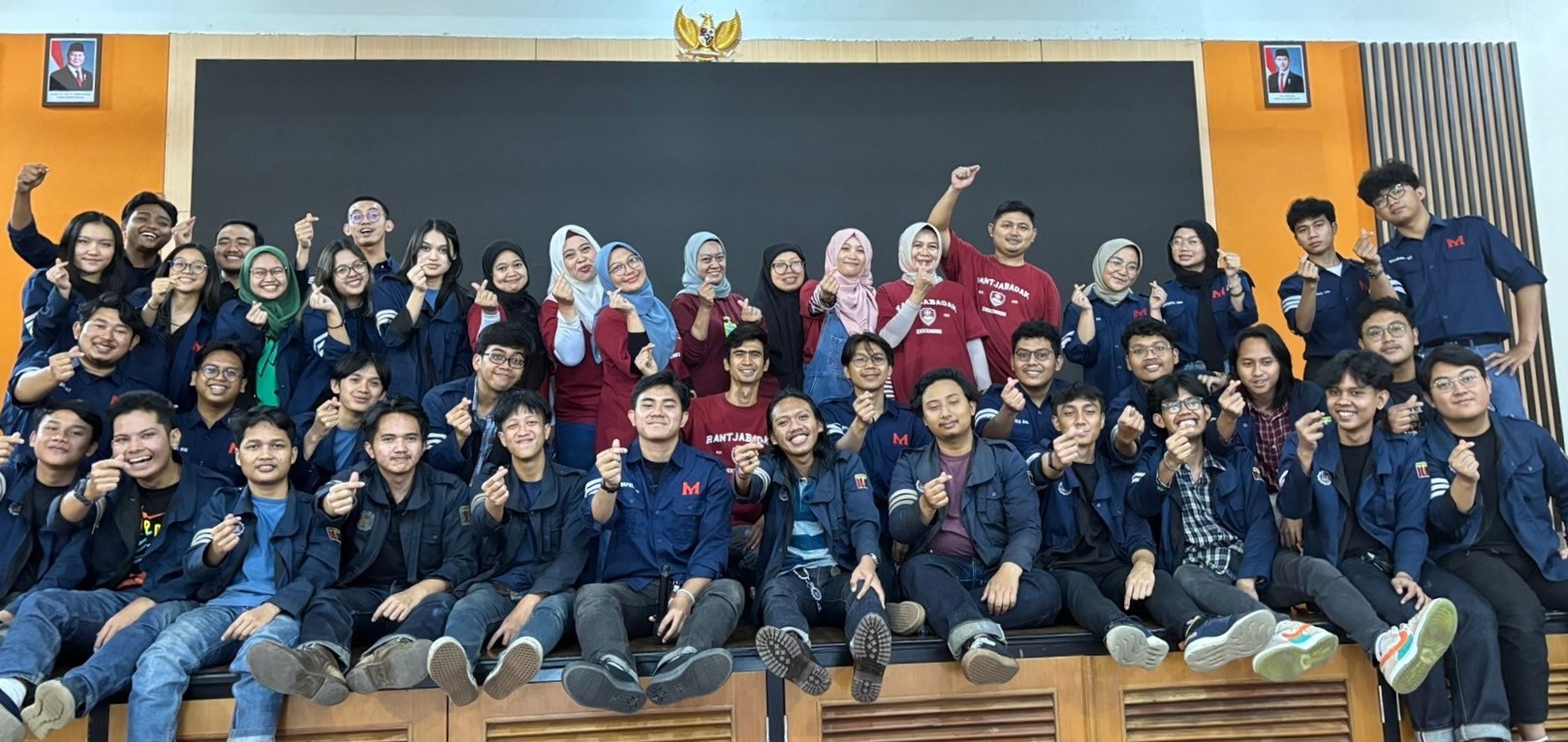Reducing The Risk of COVID-19 Exposure, FTMD ITB Present FKG Unpad a Dent-In Tool
By Adi Permana
Editor Adi Permana
BANDUNG, itb.ac.id -- Institut Teknologi Bandung (ITB) Faculty of Mechanical and Aerospace Engineering (FTMD) present a Dent-In tool for Padjadjaran University (UNPAD) Faculty of Dentistry (FKG) in FKG Unpad Campus Hall on Friday (4/6/2021).
The Dent-In submission begins with the signing of a letter of agreement by both parties, represented by the Dean of FTMD ITB Prof. Dr. Ir. Tatacipta Dirgantara, MT., and the Dean of FKG Unpad Dr. drg. Dudi Aripin, Sp.KG (K), continued with the handover of Dent-In by the Head of Dent-In Development Team Dr. Satrio Wicaksono to the Dean of FKG Unpad.
Dent-In is a kind of extraoral aero suction tool which could reduce the risk of virus exposure on dentists by isolating and sucking the aerosol from surroundings or the aerosol that came from the patient during dental care procedure. Dent-In itself is an acronym of Dental Indonesia. The name Dent-In was inspired by a part of the dental anatomy, dentin.
At the beginning of COVID-19 pandemic, there was a huge concern felt by Indonesian dentists caused by the SARS-CoV-2 virus. Most dentists could not do their practice because they are afraid to catch the virus through droplets and aerosol from their patient during the dental care procedure.
Therefore, to be able to practice again, dentists need extra equipment to suck the aerosol that splashed from the patient’s mouth, so that virus transmission risk during practice could be reduced.
“Actually, there are already several types of medical equipment on the market with a similar purpose such as HVE (High Volume Evacuator) and extraoral aerosol suction. However, these tools have some weaknesses, one of them is filter ability that is only able to filter 90% of the particles absorbed by the tool. While the SARS-CoV-2 virus size is so tiny and needs equipment that could filter the particles with the efficiency of 99,99%. Another flaw was the high price and only few exist on the market,” said the Head of the Head of Dent-In Development Team Dr. Satrio Wicaksono.
There are several advantages that differ Dent-In and the existing extraoral aerosol suction, one of them is Dent-In has a transparent hood that resembles a personal negative chamber. This hood works as a protector and a separator between the patient and the dentist so that there is extra protection and it makes the dentist's work easier because of the surface transparency.
The hood is equipped with an arm that could be moved without using a key and an LED light that helps the dentist's vision. In addition, with the hood, the nozzle cup can be placed higher, in contrast to other extraoral aerosol suction which is very close to the patient's mouth so that it slightly interferes with the dentist's work.
“Dent-In was designed to ease the dentist’s work with its user-friendly design and adapt to the needs and comfort of the dentist at work. There is also a remote control with a three-speed motor setting to adjust the suction power of the tool against aerosols to make work easier,” he explained.
Dent-In works in several steps. The suction is done by a vacuum blower to suck the air around the patient's mouth through a nozzle cup. Then, the air is flowed into a room filled with HEPA filters to filter the particles. The type of HEPA filter is the HEPA H14 type which has a filtering effectiveness of 99.99%. The air that has passed through the filter enters the vacuum blower and leaves the room which is irradiated by UV light to be sterilized before leaving the appliance to produce clean air.
“For now, there are three prototypes that have already been produced. One of the prototypes is gifted to FKG Unpad and the other two are in the testing and development stage,” he added.
Currently, the FTMD Biomechanics Team continues to develop tools despite the COVID-19 pandemic. During the process, this project is supported by several institutions such as LPDP and RISTEK-BRIN that gives funding support through COVID-19 Research Consortium and Innovation. The hope is that Dent-In could be mass-produced and be traded at an affordable price. In addition, with the Dent-In, dentists could do their work optimally without being afraid of the spread of viruses contained in aerosols and droplets such as the SARS-CoV-2 virus or other viruses.
Reporter: Adi Permana
Translator: Aghisna Syifa Rahmani (TPB SITHS 2020)

.jpg)
.jpg)
.jpg)
.jpg)
.jpg)


